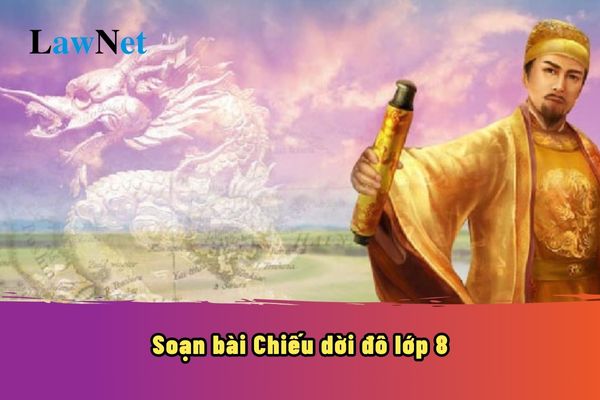What are the guidelines for preparing the lesson "Chiếu dời đô" for 8th-grade students in Vietnam? What genre does the work "Chiếu dời đô" in the 8th-grade Literature curriculum belong to?
What are the guidelines for preparing the lesson "Chiếu dời đô" for 8th-grade students in Vietnam?
"Chiếu dời đô" is an excellent piece of administrative writing with profound historical, cultural, and ideological value. The edict is not merely an administrative document but also a literary work with high artistic value.
Studying and researching "Chiếu dời đô" helps us understand more deeply the nation's history and culture, providing valuable lessons for our current lives.
8th-grade students can refer to the following sample lesson "Chiếu dời đô":
|
Sample lesson "Chiếu dời đô" "Chiếu dời đô": Author - Work |
*Note: Information is for reference only./.

What are the guidelines for preparing the lesson "Chiếu dời đô" for 8th-grade students in Vietnam? What genre does the work "Chiếu dời đô" in the 8th-grade Literature curriculum belong to? (Image from the Internet)
What genre does the work "Chiếu dời đô" in the 8th-grade Literature curriculum belong to?
Under Section 9 of the General education program in Literature issued with Circular 32/2018/TT-BGDDT regarding the selection of text corpus:
GRADE 8 AND GRADE 9
- ...
Argumentative writing- Social argumentative essay: discussing a social issue
- Literary argumentative essay: analyzing a literary work
- "Bàn luận về phép học" (Nguyen Thiep)
- "Bàn về đọc sách" (Chu Quang Tiem)
- "Bình Ngô đại cáo" (Nguyen Trai)
- "Chiếu dời đô" (Ly Cong Uan)
- Walking Tour (Excerpt from Emile, or On Education - J. Rousseau)
- "Hịch tướng sĩ" (Tran Hung Dao)
- "Phong cách Hồ Chí Minh" (Le Anh Tra)
- ...
Thus, according to the above regulation, "Chiếu dời đô" for 8th Grade belongs to the genre of argumentative literature.
What are the regulations on students oriented toward social sciences and humanities in Vietnam?
Under Section 1 of the General education program in Literature issued with Circular 32/2018/TT-BGDDT on the subject's characteristics:
CHARACTERISTICS OF THE SUBJECT
...
Career-oriented education phase: The program consolidates and develops the fundamental education stage results, helping students enhance their language and literary competencies, especially in receiving literary texts; strengthens skills in creating more complex argumentative texts and informational texts in content and writing techniques; equips some knowledge of literary history and literary theory that is practically useful for reading and writing about literature; continues to cultivate ideology, emotion, soul, and morality for students to become responsible citizens.
In addition, each year, students oriented towards social sciences and humanities choose to study certain academic topics. These modules aim to enhance knowledge of literature and language, skills in applying knowledge to practical situations, meeting the students' interests, needs, and career orientations.
Thus, under Literature's characteristics, students oriented towards social sciences and humanities may select academic topics that aim to enhance knowledge of literature and language, and skills in applying knowledge practically, aligning with their interests, needs, and career orientations.

